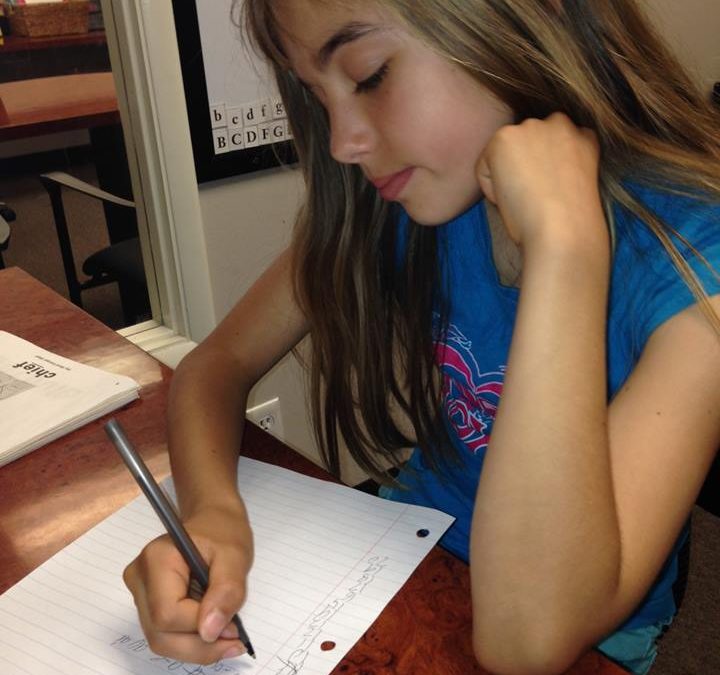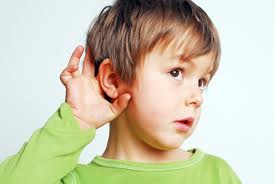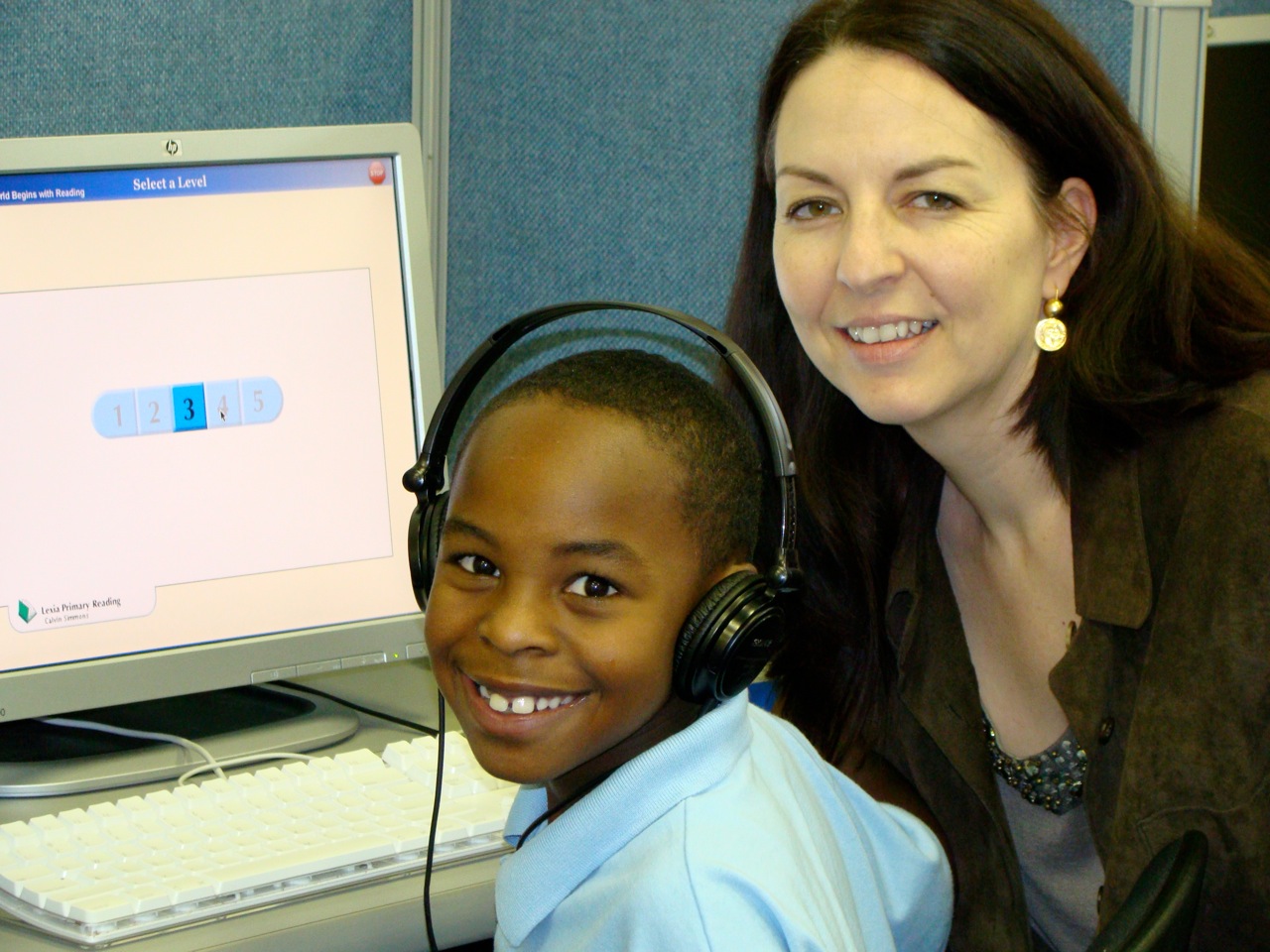
by PRIDE Reading Program Admin | Jul 12, 2017 | A PRIDE Post, Auditory Processing Disorder
The ability to process and learn from oral instructions and oral information is a fundamental skill required throughout life. So how can you help your child strengthen these skills? Here is a list of very easy do it at home activities that you can practice throughout the day to strengthen your child’s auditory processing.
End of the day review
Every night as you tuck your child into bed, discuss the events of the day. Have your child try to remember all the wonderful (or not so wonderful) things that happened that day. Can your child recall the events sequentially?
Play the game – what’s next?
Pick a room in your house and give your child two instructions. For example, “go into the dining room, grab a spoon and hide under the table.” Try to build up to 3 instructions over time. Then switch so that your child gets to give you instructions to follow too.
Follow my rhythm
You can clap a short pattern and have your child repeat it. Make it simple at first (one slow clap, two fast ones and then a slow one). Then slowly increase the complexity and loudness of the claps. Then ask your child to make up a pattern for you to repeat.
I went to the market and I bought…
This is a family game and can be played around the dinner table. Start with “I went to the market and I bought an apple.” The second person says, “I went to the market and I bought an apple an a banana.” The third person says, “I went to the market and I bought an apple and a banana and a bag of chips.” Etc. etc…
Listen to music and memorize the lyrics
Have your child listen to a song and learn to sing the lyrics. Give your child a song that they are unfamiliar with or one that they do not know the words to already. Replay the tune often until your child can sing the entire song.
Listen to Audio books
Audio books force a child to listen. Pick a story that your child enjoys and is excited about listening to. Don’t hesitate to choose books they have already read. Repetition builds understanding, and we all love to read or listen to our favorite books over and over again.
Play Mother May I
Have your child line up and face you (about 20 feet away). Then give your child 2 commands such as, “Take 3 steps forward and touch your nose with your right pinky finger. Or, hop forward 2 hops then do the chicken dance.” The child will ask, “Mother may I?” You answer yes or no. When your child finally gets to you – switch roles. Eventually try to get up to 3 commands.
Memorize a Poem
Have your child memorize a poem and recite it to you. Aim for memorization of at least four to eight short poems during the school year. Keep reciting the old ones and build up a repertoire. Try to pick poems that the child has read and enjoyed. This can begin with simple fun ones and then eventually increase to some rich and deep poetry too.
When you strengthen your child’s auditory processing skills, remember to make it a fun experience for both you and them. Just a few minutes a day with some of the above mentioned activities will hopefully make a big difference.
Learn more about the New PRIDE Reading Program
________________________________________________________________________________

Karina Richland, M.A., developed the PRIDE Reading Program, an Orton-Gillingham program for struggling readers, based on her extensive experience working with children with learning differences over the past 30 years. She has been a teacher, educational consultant and the Executive Director of PRIDE Learning Centers in Southern California. Please feel free to email her with any questions at info@pridelearningcenter.com.

by PRIDE Reading Program Admin | Feb 20, 2016 | A PRIDE Post, Auditory Processing Disorder
Almost every school activity, including listening to teachers, interacting with classmates, singing along in music class, following instructions in physical education, etc, depends on the ability for students to process sounds and have a strong auditory system in learning. But what happens if this auditory system has deficits? Can a child still learn?
Does my child have Auditory Processing Disorder?
Auditory Processing (APD) is a very common learning disability and affects about 5% of school-age children. Auditory Processing can present itself with many different symptoms and behaviors. Often these behaviors resemble those seen with other learning challenges, like language difficulties, attention problems and autism. Most children with auditory processing difficulties show only a few of the following behaviors. No child will show all of them. However, any child who displays several of these symptoms should be carefully evaluated for auditory processing disorder.
- Delayed speech.
- Persistent articulation errors.
- Abnormally soft, loud, flat, formal, or “pedantic” speaking voice.
- Difficulty conducting casual conversations.
- Difficulty reading or spelling due to problems discriminating word sounds.
- Difficulty following oral directions.
- Difficulty organizing behaviors.
- A tendency to appear quiet, distracted, or off topic during group discussions or to interrupt or blurt out answers.
- Long delays before responding to questions or instructions.
- Preferences for nonverbal tasks or a markedly higher performance IQ than verbal IQ.
- Difficulty taking notes.
- Worsening performance in higher grades as oral instruction load and receptive language demands increase.
- Difficulties with inference, abstraction, and figurative language.
- Difficulty hearing in the presence of background noise.
- Difficulty understanding what’s said.
- A tendency to ask for restatement or clarification, or repeatedly saying “what?” or “huh?”
- Marked difficulty understanding speakers with particularly high or low-pitched voices or with prominent accents.
How does Auditory Processing affect my child’s learning?
Children with Auditory Processing Disorders have difficulties distinguishing the sounds or phonemes in spoken words, especially those in complex words and sentences. This is referred to as Auditory Discrimination Deficits. If a child has difficulties discriminating sounds in language, then words will sound unclear or distorted as well as many will sound alike. This in turn will affect a child’s development of language skills. They may have trouble speaking and listening, because of problems learning basic grammar and word meanings. Many vowel and consonant sounds may sound the same to them, especially when spoken quickly. As a result, not only will they have difficulty hearing the differences between words that sound alike (think, thing, sink, thin) they will also have difficulty understanding the connections between those words and the letters used to represent them.
This is why children with Auditory Processing Difficulties often have trouble with reading and spelling. Since they cannot hear the sound distinctions between words, the rules linking sounds to letters and letter groups can be hard for them to master.
Most children with Auditory Processing Disorder have difficulty hearing in the presence of background noise. This is referred to as Auditory Figure-Ground Deficits. Although the children often hear well enough at home or in quiet environments, they may appear hard of hearing or even functionally deaf in noisy environments such as school.
In the classroom, a child with Auditory Processing Deficits will have great difficulties staying focused on a listening task. This is referred to as Auditory Attention Deficits. If a teacher is giving a lecture, for example, the student might listen in for a few minutes but then drift off and daydream missing out on significant amounts of information.
Students with Auditory Processing Challenges have great difficulties remembering information given. This is referred to as Auditory Memory Deficits. If the teacher says, “get a piece of paper and a pencil out of your desk and write down your spelling words,” the student may get confused because there are too many commands at once. Impairments in the auditory memory deficits can severely weaken not only long-term memory but also language development and comprehension.
How can a child with Auditory Processing Disorder get help?
The sooner a child with Auditory Processing Disorder is given proper teaching strategies, particularly in the very early grades, the more likely it is that they will have fewer or milder difficulties later in life. These students will need a very structured, systematic, cumulative, repetitive and multisensory teaching method such as the Orton-Gillingham approach. By using a multisensory approach the student will be able to learn using the visual and kinesthetic modalities while simultaneously strengthening the auditory channels.
The best learning environment for a student with auditory processing is always one-to-one with very minimal distractions and outside noises. Students who have severe auditory processing disorder may need an intensive training program to catch up and stay up with the rest of their class. During this intensive training, students will overcome many reading, writing, spelling and comprehension difficulties and learn strategies that will last a lifetime.
Teachers and parents both need to remember that Auditory Processing Disorder is a real condition. The symptoms and behaviors are not within the child’s control. Children with Auditory Processing Disorder are not being defiant or being lazy. A child with Auditory Processing Disorder can go on in life and become just as successful as other classmates.
Learn more about the New PRIDE Reading Program
________________________________________________________________________________________

Karina Richland, M.A. is the Founder of PRIDE Learning Centers, located in Los Angeles and Orange County. Ms. Richland is a certified reading and learning disability specialist. Ms. Richland speaks frequently to parents, teachers, and professionals on learning differences, and writes for several journals and publications. You can reach her by email at karina@pridelearningcenter.com or visit the PRIDE Learning Center website at: www.pridelearningcenter.com

by PRIDE Reading Program Admin | Jan 28, 2015 | A PRIDE Post, Auditory Processing Disorder
If your child has auditory processing and finds it difficult to concentrate and retain information, here are a few fun activities that you and your child can do together that will target and improve auditory processing skills:
Practice sequencing with sounds
Ask your child to cover his eyes with his hands while you make a noise such as closing the door, sneezing, or playing a key on the piano. Have your child first identify the noise. Then try two noises, one after the other. Your child will then identify the two sounds in sequence. Add the number of sounds in the sequence until your child gets tired with the game. Some ideas for noises are:
- Whistling
- Snapping fingers
- Sharpening a pencil
- Hammering
- Tearing paper
- Slamming a book closed
- Ringing a bell
- Blowing a whistle
- Clapping
- Coughing
- Drumming with fingers
- Hammering
- Crumpling paper
- Unwrapping candy
Name the mistake
Recite or read aloud a familiar text, poem or rhyme changing its words or wording. Your child should raise his hand whenever an error occurs. You can change the words, grammar, phonemes and meaning. Also, you can swap word order or word parts. Here are a few examples:
- Once a time upon…
- Old McDonald had a fern…
- Twinkle, twinkle little car…
Clapping syllables
Start out by pronouncing each family member’s name by clapping it syllable by syllable. Then ask your child to say and clap the name along with you. Each clap represents a syllable or word part. After each name has been clapped ask, “how many syllables did you hear?” You can also have your child place two fingers under her chin, so that she can feel her chin drop for each syllable. This also allows your child to feel the vibration of each syllable.
Sound substitution
In this activity, your child will make new words by replacing the first sound in the word with the target sound. For example, target the phoneme /l/. Ask your child to substitute the /h/ in ‘hand’ with /l/. The word now becomes ‘land.’
Sound sort
Make picture cards using magazines or computer art. Glue the pictures on index cards and laminate them if you can. Spread selected pictures in front of your child and ask him to find the picture whose name starts with a certain sound. As each picture is found, have your child name the picture and the initial sound. For example you can say, “what picture begins with the sound /s/?” Your child might respond “Snake, /s/.” Examples of some pictures include:
Picture guess
Using the same pictures, place them in a bag. Pick out a picture from the bag and don’t show it to your child. Pronounce the name of the picture, phoneme by phoneme. For a picture of a cat, you will say /c/ /a/ /t/. Then your son guesses what the picture is from your isolated sounds. Take turns guessing each other’s pictures.
Listen for sounds
Have your child sit on the floor, close his eyes and identify sounds that you make. You can drop a pencil, bounce a ball, tap on the window, use a stapler, cut with scissors, sip on a cup of coffee or type on your computer. Trade roles and then let the child make different sounds that you have to identify.
Outside noises
Sit outside under a tree with your child. Listen for various sounds like birds chirping, airplanes flying overhead, cars driving by, voices of children playing are pretty fun to identify. You can have a little notebook on hand and keep a list of all of the different sounds you come across.
Repeat after me
Sit across from your child and clap your hands to a rhythmic pattern alternating between slow and fast tempos. Have your child repeat the pattern. You can also use various instruments, play a drum or bounce a ball to a variety of rhythms. Switch roles and let your child be the sound leader as well.
Hide and seek
Hide a metronome or a ticking clock somewhere in your home. Have your child find it by locating the sound. Another variation of this game can be played outside. You can hide somewhere and blow a whistle. The child will then follow the sounds to find where you are hiding.
Read rhyming books
Repetitive rhyming books help children listen carefully to the similar sounds of rhyming words. Some great rhyming books are “Hop on Pop”, “Fox in Socks”, Goose on the Loose” and “Goodnight Moon.”
Sing songs
Sing songs together that involve repeating previous verses, such as “Old MacDonald Had a Farm”, “Over in the River”, “The Twelve Days of Christmas” and “The Green Grass Grows All Around.”
Practice focusing
Read a very simple story to your child with soft music playing in the background. Before reading the story, tell your child to listen for specific pieces of information in the story (for example the main characters name). You can gradually increase the difficulty of the information you want your child to listen for.
Comprehension check
Read an unfamiliar story to your child. Afterwards ask your child questions about the sequence of events. What happened first, who went to the game, etc. Continue to ask questions until the events in the story have been reviewed. You can also ask your child to predict likely events in the story.
Karina Richland, M.A., is the Founder of PRIDE Learning Centers, located in Los Angeles and Orange County. Ms. Richland is a certified reading and learning disability specialist. Ms. Richland speaks frequently to parents, teachers, and professionals on learning differences, and writes for several journals and publications. You can reach her by email at karina@pridelearningcenter.com or visit the PRIDE Learning Center website at: www.pridelearningcenter.com

by PRIDE Reading Program Admin | Mar 5, 2012 | News & Events
Our summer program is our most popular program of the year. Pride’s teachers are all credentialed and certified in Orton-Gillingham methodology. Pride programs are always taught one-on-one.
Pride’s fun-filled yet intensive one-on-one reading program has become so popular that we even draw families from all over the globe. Recent students have come to Pride from China, Japan, Saudi Arabia, France, England, Canada and even the San Fernando Valley.
Sample Daily Schedule:
9:00 – 10:00: Orton-Gillingham Reading Instruction
10:00 – 10:30: Computer Based Reading Instruction
10:30 – 11:00: Snack, Fun and Movement
11:00 – 11:30: Written Expression
11:30 – 12:00: Orton-Gillingham Reading Instruction
Times:
9:00am – 12:00pm or 1:00pm – 4:00pm Monday – Friday
Our Summer 2012 program runs weekly from June 25th – August 31st. You can sign up for any weeks you like during those dates.
Tuition is $980 weekly
Take advantage of our Discounts!
- 10% off early registration by April 31, 2012
- 10% off for returning families
- 20% off for bringing a friend
- 15% off if you register for 4 or more weeks
Space is limited and our summer sessions fill up quickly.
Call us today at 866-774-3342 to request a registration form. Or email us at info@pridelearningcenter.com

by PRIDE Reading Program Admin | Aug 23, 2011 | A PRIDE Post, Auditory Processing Disorder
By Karina Richland, M.A., E.T.
- Is your child easily distracted or bothered by loud or sudden noises?
- Are conversations difficult for your child to follow?
- Are noisy environments upsetting?
- Are verbal (word) math problems demanding?
- Does your child have difficulty following directions?
- Is abstract information tough to interpret?
- Does your child struggle with reading, spelling, writing, or other speech-related language difficulties?
Central auditory processing disorder (CAPD) occurs when the ear and the brain do not coordinate together completely. Many of the behaviors associated with central auditory processing disorder also appear in other conditions such as learning disabilities (LD) and attention deficit disorder (ADHD). The symptoms in each individual can range from mild to severe and only a trained professional, such as a speech-language pathologists and an audiologist who specialize in CAPD, can determine if your child actually has a central auditory processing disorder.
If your child does have central auditory processing disorder and finds it difficult to concentrate and follow directions, there are numerous strategies that parents can implement for their child.
What was I supposed to do again?
In order to help a child with CAPD follow directions, try reducing background noises, always have the child look at you when you are speaking and use simple, expressive sentences. Speaking at a slightly louder volume and at a slower tempo will also help significantly. Have your child repeat the directions back to you aloud a few times and be certain that they understand the directions they are repeating and not just mimicking your voice.
I left my book at school.
A student with CAPD will thrive on routine and structure. Teach your child how to focus and cope in chaotic environments (like middle school). Before going home for the day, for instance, have the child check his or her assignment book and list what he or she needs to take home that day.
I can’t concentrate; it’s too loud in here.
At school the child should sit towards the front of the room facing the teacher with his or her back to the windows, doors, and other sources of distraction. The teacher can periodically touch the child’s shoulder to remind him or her to focus or get ready for a transition. Teachers should use lots and lots of visual aids jotting down instructions or key words on the board, and providing simple written outlines. For younger students a drawing works fine as a reminder.
At home, provide the child with a quiet study place. Keep the TV turned off and any outside stimuli far away. Make sure the work desk is free of clutter and well organized. Maintain a peaceful, organized lifestyle that also encourages good eating and sleeping habits and keeping a neat room and desk.
Teachers and parents both need to remember that central auditory processing disorder is a real condition. The symptoms and behaviors are not within the child’s control. Children with CAPD are not being defiant or being lazy. Help them build a strong self-esteem and learn to advocate for themselves, as they get older. Keep it positive and keep life fun!
__________________________________________________________________________________________
Karina Richland, M.A., E.T. is the Managing Director of Pride Learning Centers, located in Los Angeles and Orange County. A former teacher for Los Angeles Unified School District, Ms. Richland is a Reading and Learning Disability Specialist. Ms. Richland speaks frequently to parents, teachers, and professionals on learning differences, and writes for several journals and publications. You can reach her by email at: info@pridelearningcenter.com or visit the Pride Learning Center website at:
www.pridelearningcenter.com







